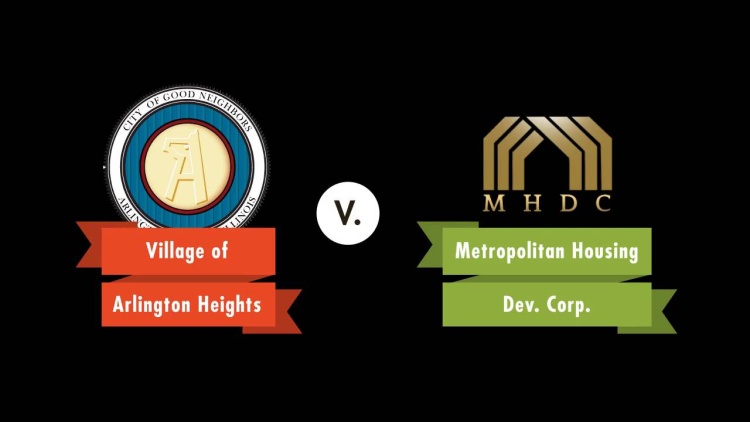Village of Arlington Heights v. Metropolitan Housing Development Corp.
United States Supreme Court
429 U.S. 252 (1977)
- Written by Jamie Milne, JD
Facts
The Village of Arlington Heights (Arlington) (defendant), a Chicago suburb, was predominantly zoned for single-family homes. The area’s racial diversity was minimal. The Metropolitan Housing Development Corp. (MHDC) (plaintiff), a nonprofit developer, applied to Arlington for a permit to rezone 15 acres from single-family use to multiple-family use. MHDC planned to build a housing development with 190 units for low- to middle-income residents. The development was to use federal housing subsidies that were contingent on efforts to ensure the development’s racial integration. After a public hearing, a committee recommended rejecting the permit for two main reasons. First, residents owning nearby property would experience an unanticipated decrease in property values. Second, multiple-family use was generally approved only if such housing would be a buffer between residential and commercial property, a justification inapplicable here. Permits had been previously denied for the same reasons. Arlington denied MHDC’s permit. MHDC and three Black individuals (plaintiffs), one of whom was a likely future resident of the development, sued Arlington. They alleged that the permit denial was racially discriminatory and therefore violated the Fourteenth Amendment’s Equal Protection Clause and the Fair Housing Act. The district court upheld the permit denial. However, the court of appeals reversed, finding that although not motivated by racial discrimination, the denial had racially discriminatory effects and did not serve a sufficiently compelling government interest. The United States Supreme Court granted certiorari.
Rule of Law
Issue
Holding and Reasoning (Powell, J.)
Concurrence/Dissent (Marshall, J.)
Dissent (White, J.)
What to do next…
Here's why 907,000 law students have relied on our case briefs:
- Written by law professors and practitioners, not other law students. 47,100 briefs, keyed to 996 casebooks. Top-notch customer support.
- The right amount of information, includes the facts, issues, rule of law, holding and reasoning, and any concurrences and dissents.
- Access in your classes, works on your mobile and tablet. Massive library of related video lessons and high quality multiple-choice questions.
- Easy to use, uniform format for every case brief. Written in plain English, not in legalese. Our briefs summarize and simplify; they don’t just repeat the court’s language.





